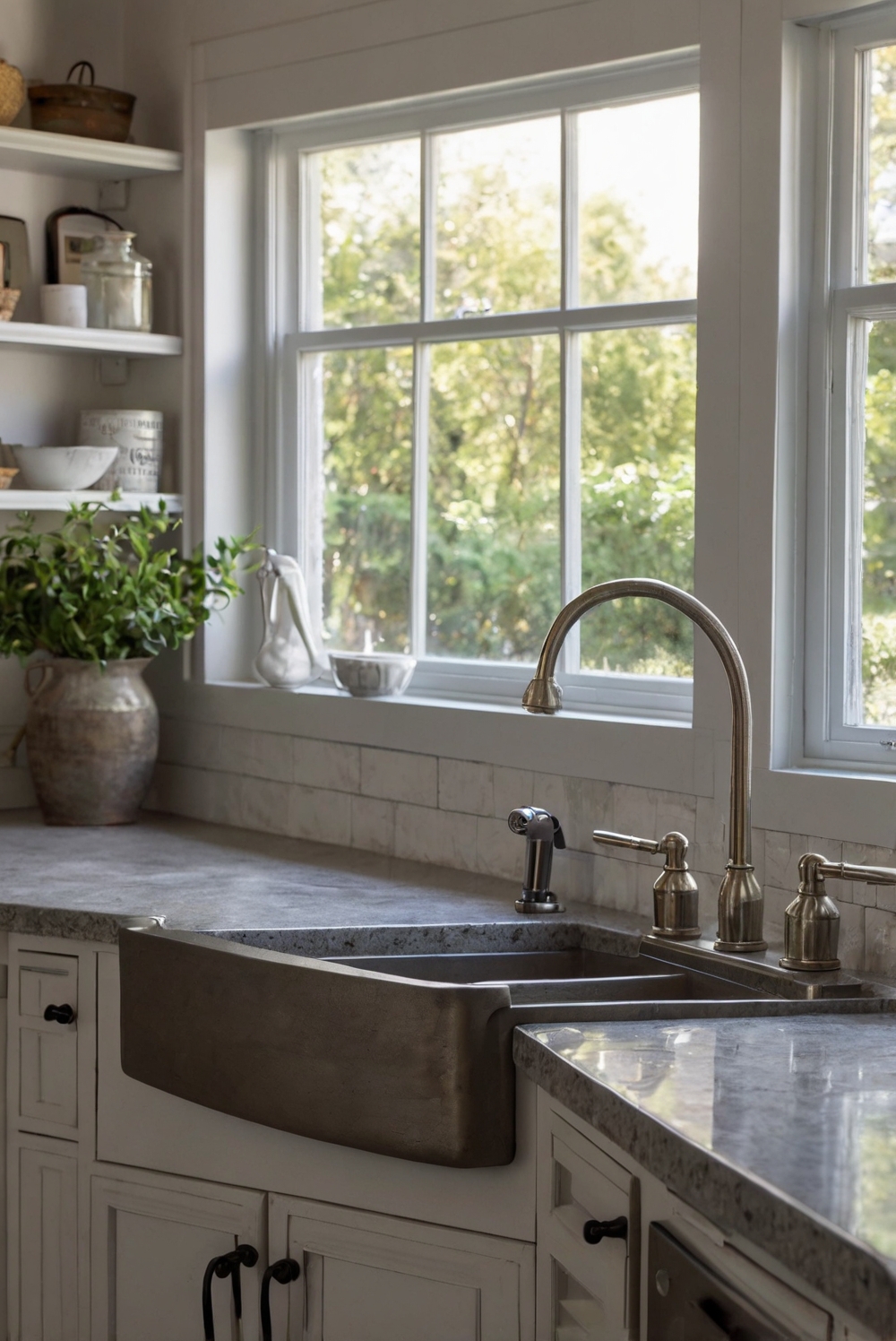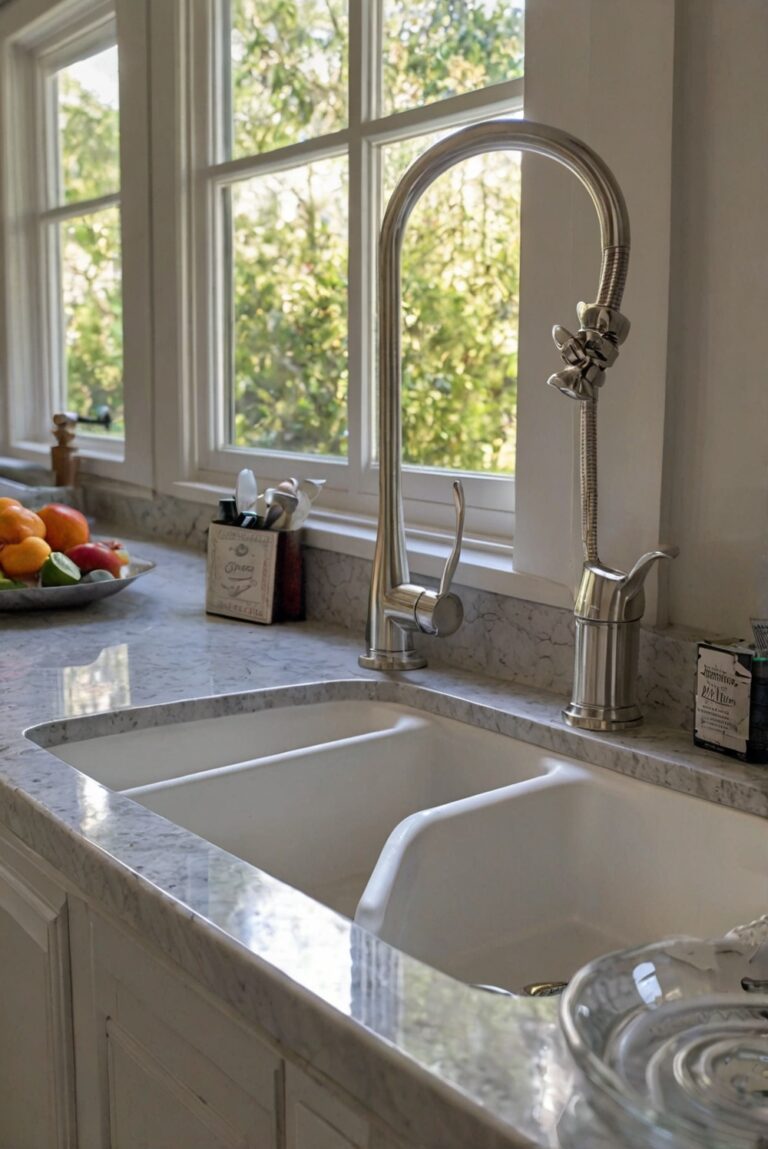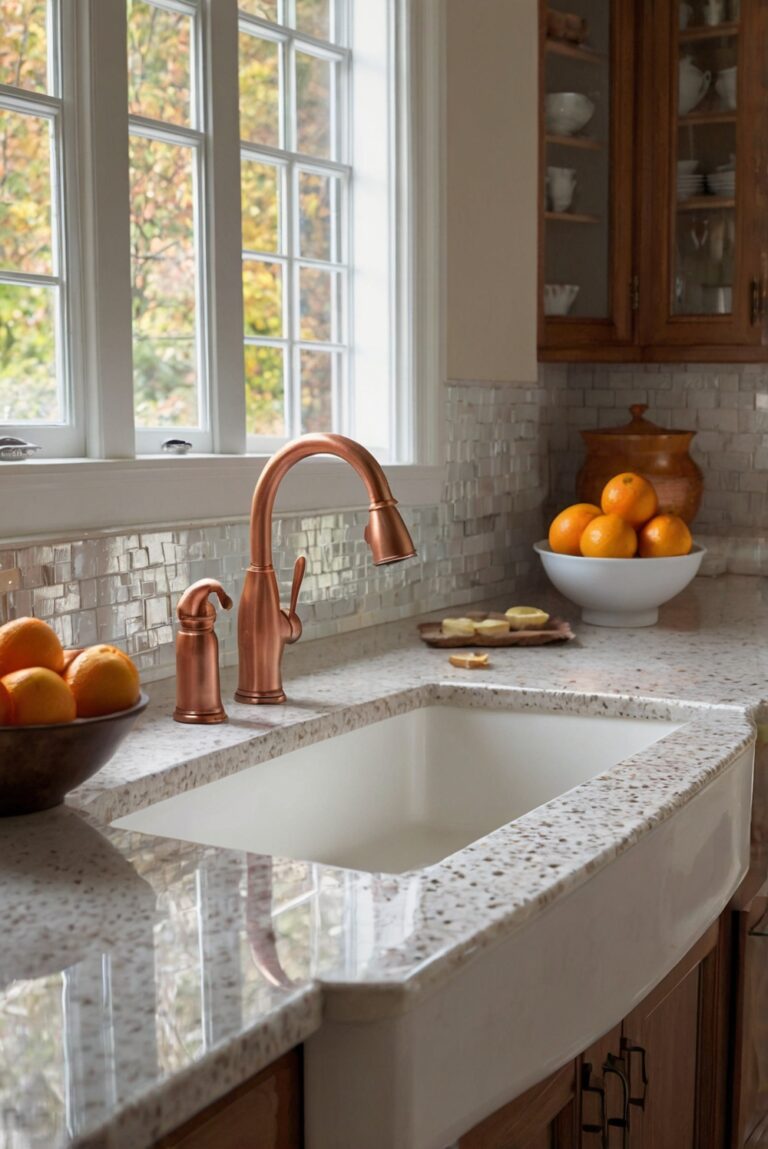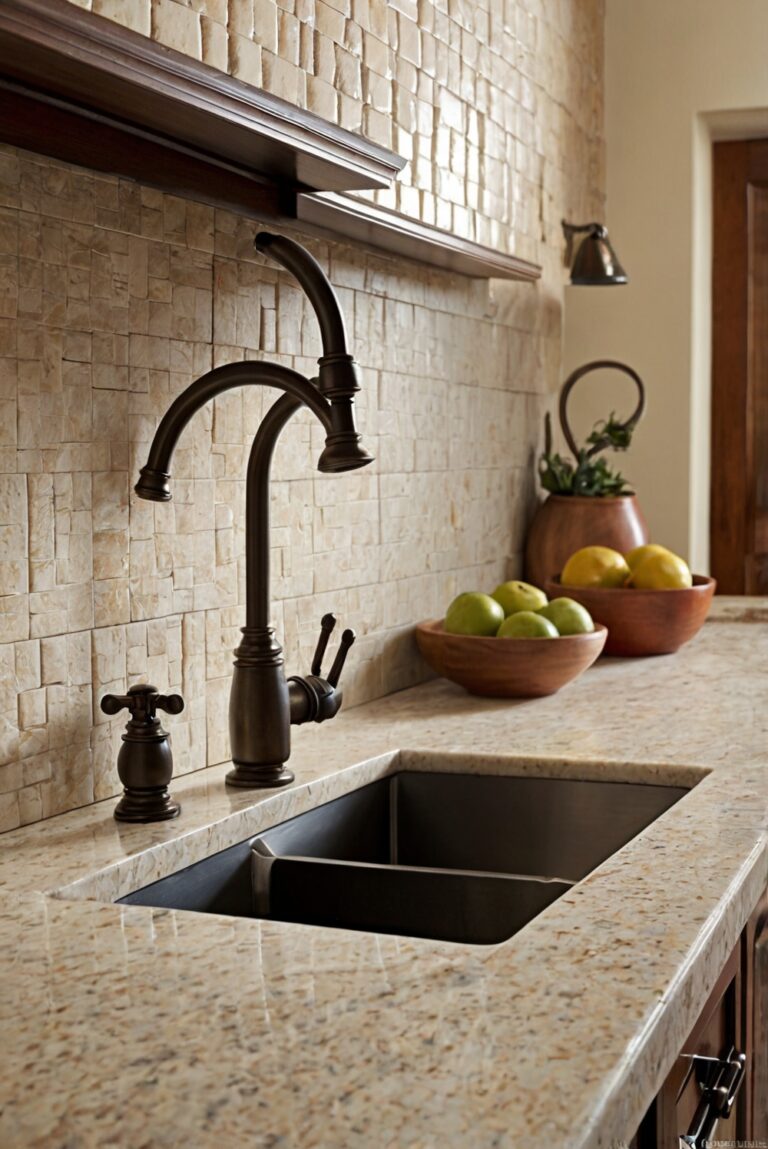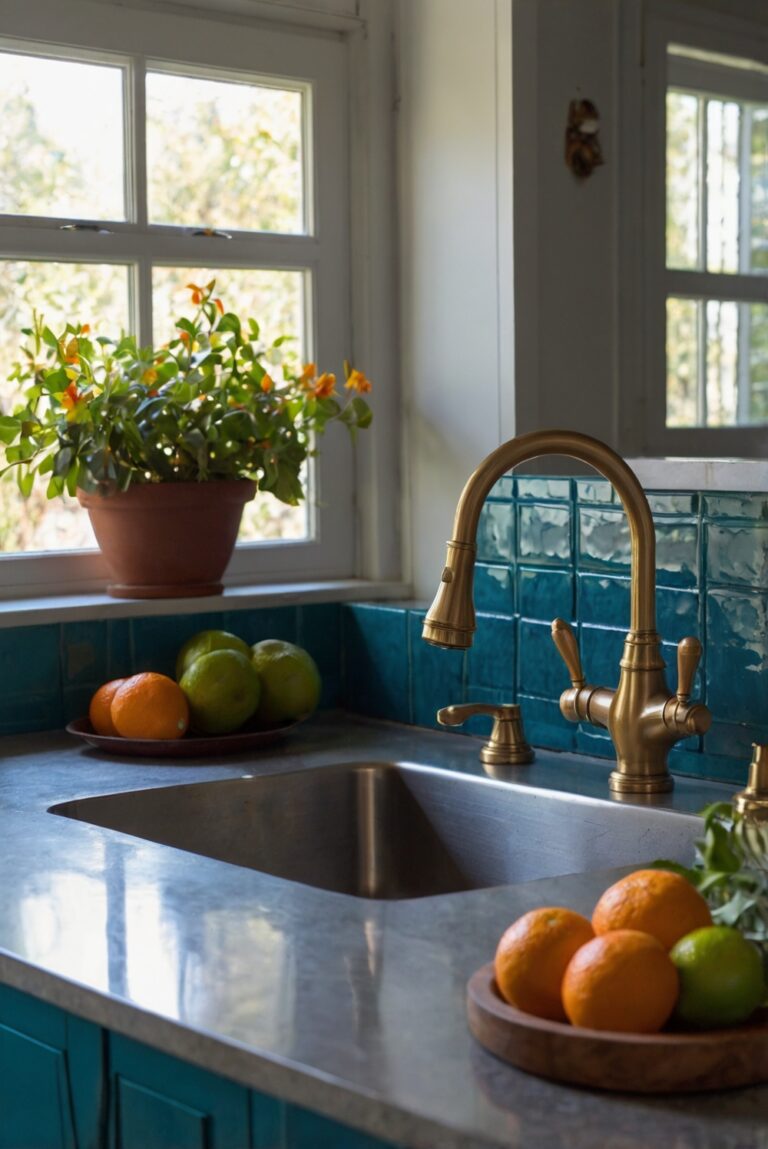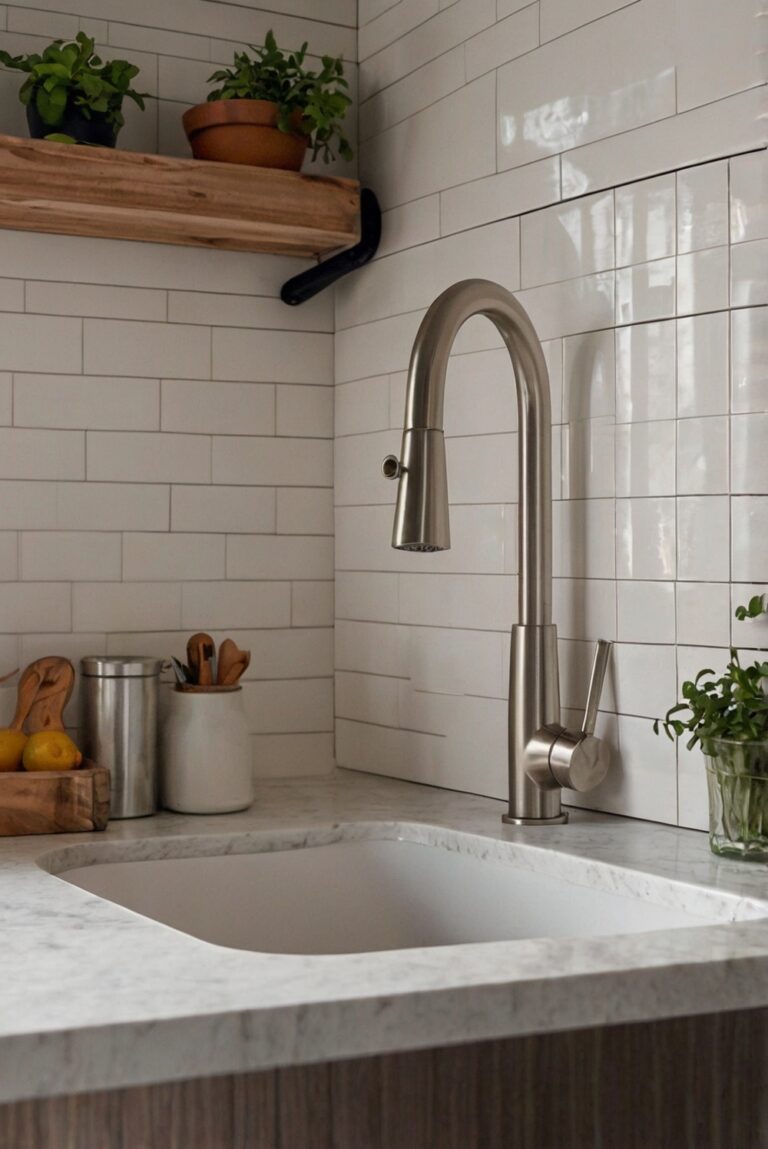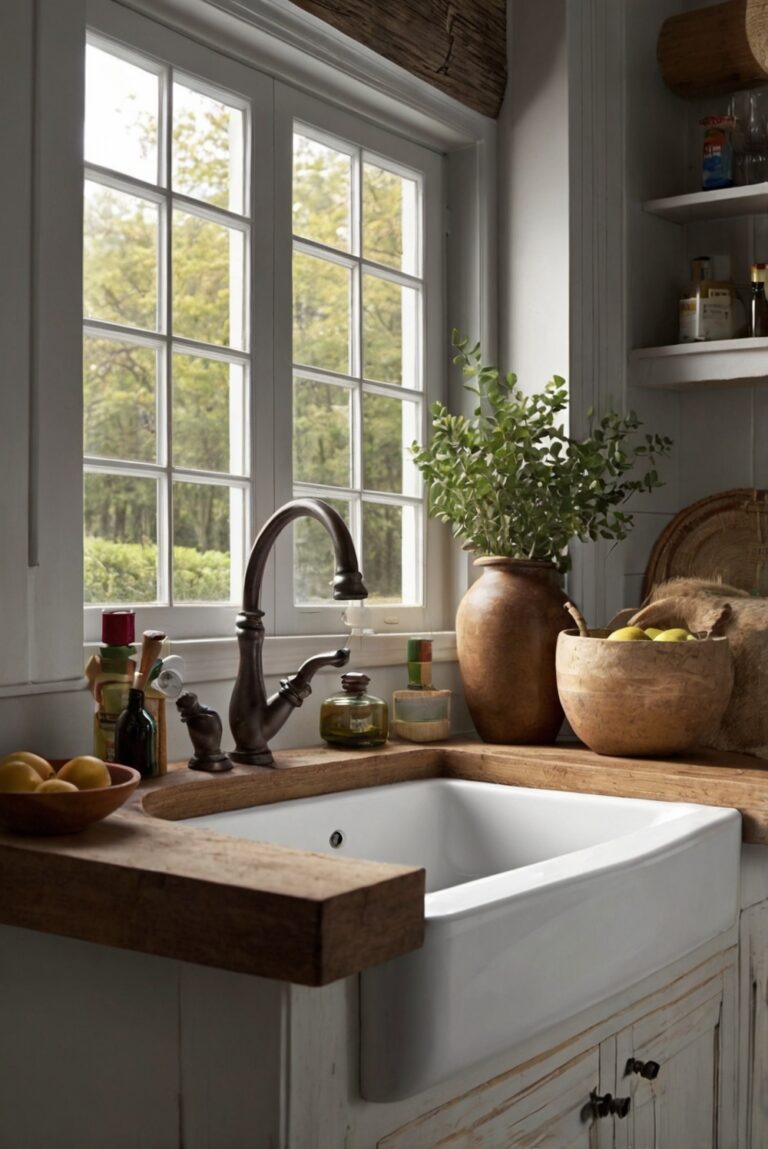Increase the tranquility in your kitchen with a soundproofing kitchen sink. Discover tips and options for choosing the perfect one for your space.
To choose a kitchen sink with soundproofing features, consider the following tips:
– Look for sinks made of materials known for sound-absorption such as heavy-duty stainless steel or granite composite.
– Opt for sinks with padded or sprayed coatings underneath to dampen noise.
– Consider choosing sinks with special soundproofing pads or panels that reduce vibrations.
– Look for sinks with designs that incorporate noise-deadening features like tapered channels or insulation layers.
Incorporating soundproofing features into your kitchen sink can create a quieter and more peaceful environment while cooking or doing dishes. By selecting the right sink, you can enhance the overall functionality and enjoyment of your kitchen space.
What to Consider When Choosing a Kitchen Sink with Soundproofing Features:
When selecting a kitchen sink with soundproofing features, there are several important factors to consider. **The first thing to look at is the material of the sink.** Stainless steel sinks are a popular choice as they are durable and have natural soundproofing properties. **Next, consider the thickness of the sink.** Thicker sinks tend to be quieter as they absorb more noise. **Lastly, think about the soundproofing coating or padding used in the sink.** Some sinks come with extra layers of insulation to reduce noise further.
Benefits of Choosing a Kitchen Sink with Soundproofing Features:
Opting for a kitchen sink with soundproofing features can bring several benefits. **One major advantage is noise reduction.** The soundproofing elements in the sink help minimize the noise of dishes clattering and water running, creating a quieter kitchen environment. **Additionally, soundproofing can prevent condensation and reduce the risk of damage to the cabinets below the sink.** This can help prolong the lifespan of your kitchen fixtures and prevent costly repairs in the future.
Types of Soundproofing Features for Kitchen Sinks:
There are different types of soundproofing features available for kitchen sinks. **One common method is the use of undercoating or padding.** This involves applying a layer of sound-absorbing material to the underside of the sink to dampen noise. **Another option is sound-dampening pads that are placed on the sides of the sink to reduce vibrations and noise.** Some sinks also come with a spray-on coating that adds an extra layer of sound insulation.
How to Install a Kitchen Sink with Soundproofing Features:
When installing a kitchen sink with soundproofing features, **it is essential to follow the manufacturer’s instructions carefully.** Start by preparing the sink cutout in the countertop and placing the sink in position. **Ensure that the soundproofing materials are properly installed according to the manufacturer’s guidelines.** Connect the plumbing lines and secure the sink in place. **Finally, test the sink to ensure that it is properly installed and functioning as expected.**
Tips for Maintaining a Kitchen Sink with Soundproofing Features:
To keep your kitchen sink with soundproofing features in top condition, **make sure to clean it regularly with a mild detergent and water.** Avoid using harsh chemicals or abrasive cleaners that can damage the soundproofing materials. **Check for any signs of wear or damage to the soundproofing elements and repair or replace them as needed.** Additionally, be mindful of what you put in the sink to prevent any potential damage to the soundproofing features.
In conclusion, choosing a kitchen sink with soundproofing features can enhance your kitchen experience by reducing noise levels and protecting your cabinets. By considering factors such as material, thickness, and soundproofing methods, you can select a sink that meets your needs. Installing and maintaining the sink properly will ensure that it continues to provide the desired soundproofing benefits for years to come.
1. What are the benefits of choosing a kitchen sink with soundproofing features?
Choosing a kitchen sink with soundproofing features can significantly reduce noise levels, especially during dishwashing or garbage disposal use. The soundproofing material absorbs vibrations, resulting in a quieter kitchen environment. This can be particularly beneficial in open-concept homes or apartments where noise travels easily. Additionally, soundproofing helps to prevent the sink from sounding hollow or tinny, creating a more high-end feel in the kitchen. Overall, the benefits of a soundproof kitchen sink include a more peaceful cooking and cleaning experience and a more pleasant kitchen atmosphere.
2. How can I determine if a kitchen sink has effective soundproofing features?
To ensure that a kitchen sink has effective soundproofing features, look for sinks that are specifically labeled as soundproof or have additional insulation layers. Some popular soundproofing materials used in sinks include rubber pads, undercoating, and spray-on coatings. Reading customer reviews and ratings can also provide insight into the effectiveness of a sink’s soundproofing features. Additionally, a heavier sink is likely to have better sound-absorbing properties. When shopping for a sink, consider testing the sink in person if possible to listen for any noise reduction compared to non-soundproofed sinks.
3. Are there different types of soundproofing materials used in kitchen sinks?
Yes, there are various types of soundproofing materials used in kitchen sinks to reduce noise levels. Common soundproofing materials include rubber pads, which are often attached to the bottom or sides of the sink to absorb vibrations. Undercoating, a layer of sound-dampening material applied to the underside of the sink, is another popular option. Some sinks may also feature a spray-on insulation coating that helps reduce noise. Each type of soundproofing material has its own benefits and effectiveness, so it’s essential to consider which type best suits your needs when choosing a kitchen sink with soundproofing features.
4. What should I consider when selecting a kitchen sink with soundproofing features?
When selecting a kitchen sink with soundproofing features, several factors should be considered to ensure you make the right choice. Firstly, consider the material of the sink itself, as heavier materials like stainless steel or cast iron naturally absorb more sound. Look for sinks with additional soundproofing layers, such as rubber pads or undercoating, for enhanced noise reduction. Consider the size and depth of the sink, as larger sinks with deeper basins can help contain noise better. Lastly, take into account the design and style of the sink to ensure it complements your kitchen decor while providing the desired soundproofing benefits.
5. Are there any specific brands or models known for their effective soundproofing features in kitchen sinks?
Several brands and models are known for their effective soundproofing features in kitchen sinks. Some popular choices include Kraus, Blanco, and Ruvati, which offer a range of sink options with soundproofing materials like rubber pads and undercoating. The Kraus Quarza Series and Blanco Performa Series are highly rated for their noise reduction capabilities. Additionally, the Ruvati Verona Series is praised for its soundproofing qualities and durable construction. When choosing a kitchen sink with soundproofing features, consider exploring these brands and models known for their effective noise reduction to find the best option for your kitchen.
By providing detailed answers to these common questions, you can help readers understand the importance of soundproofing features in kitchen sinks and make informed decisions when choosing a sink for their home.

